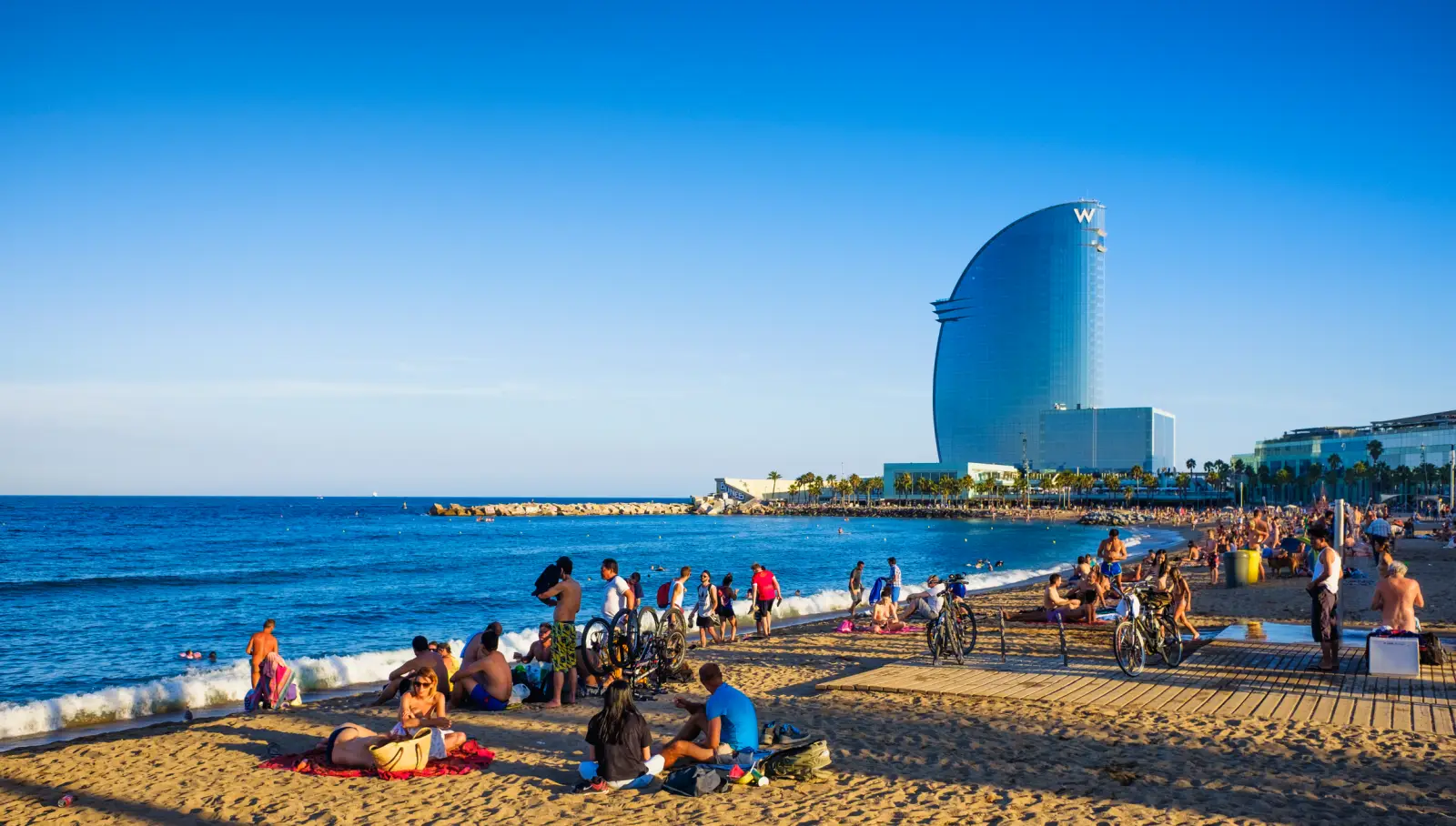Spain’s tourism sector has recorded a significant slowdown in growth this summer, rising by only 2.8% compared with the same period last year, according to the latest quarterly report by Exceltur, the Spanish tourism alliance.
The organization stated that the industry has entered a new phase of “normalization” after years of strong expansion, which has positioned tourism as the country’s leading economic driver.
The weaker growth follows a 3.3% rise in the second quarter of 2025, already signaling the start of a cooling trend. Exceltur has revised its full-year forecast for 2025 to 2.8%, down from an initial 3.3%, warning that tourism’s contribution to Spain’s overall GDP growth will drop sharply this year compared to previous years.
“The tourism sector, which had been a great driver of the Spanish economy, will no longer play that leading role,” said Óscar Perelli, Executive Vice President of Exceltur.
Tourism Growth Cools as Spending Outpaces Visitor Numbers
Exceltur’s report shows that tourism activity in Spain has slowed across key indicators. Sales increased by only 2.8% during the summer, compared with 4.5% in the same period of 2024. Employment growth in the sector also eased to 2.1%, falling below the national average of 2.7%. While demand from foreign tourists continues to support overall activity, domestic tourism has stagnated, according to the organization’s findings.
Foreign visitor arrivals grew 2.3% compared to last year, while overnight stays rose only 0.5%. Despite this modest increase in volume, overall tourist spending advanced more robustly, up 5.6% from 2024. Exceltur attributes this rise to higher prices and longer stays by some international travelers. Traditional European source markets such as Germany, France, Italy, and Belgium showed weaker demand, while arrivals from the United Kingdom, Ireland, Poland, Portugal, Asia, and Latin America partially offset the decline.
“We have closed a summer in which tourism has slowed its dynamism,” said Perelli, noting that the sector’s performance reflects a broader moderation across Spain’s economy. “We have moved from growth of more than 10% last year to 2.8% this summer. We are entering a stage of normalization, in which the sector is expanding at a pace consistent with macroeconomic conditions.”
Normalization Phase and Policy Priorities
Exceltur emphasized that the current slowdown should not be seen as negative, but as a transition toward sustainable, long-term growth. “This means opening a stage of normalization,” said Perelli, adding that the sector continues to generate value despite reduced momentum. The organization forecasts that tourism’s contribution to national GDP growth will fall from 52.6% between 2021 and 2024 to about 13% in 2025.
Looking ahead, Exceltur expects growth to continue moderating in the final quarter of 2025, with sales increasing by around 2%. The group is urging greater collaboration between public and private stakeholders to enhance tourism’s overall contribution to Spain’s economy and social well-being. Among its recommendations are accelerating the implementation of the government’s “Sustainable Tourism Strategy Spain 2030,” regenerating mature sun-and-beach destinations, and combating illegal short-term rentals.
The organization also highlighted the need for improved infrastructure reliability after a summer marked by disruptions in airports and rail networks. Exceltur called on Adif and Aena to expedite investments and prioritize service quality over profit maximization. The group argued that well-functioning transport systems are essential for maintaining Spain’s global competitiveness as a tourism destination.
“We must work together on strategies that strengthen tourism’s value creation,” Perelli said, pointing out that Spain’s success now depends less on visitor volume and more on improving service quality and sustainability. The report underscores the shift from an era of record-breaking growth to one focused on stabilizing the sector and addressing structural challenges that could affect future performance.
Despite the moderation, Exceltur noted that tourism remains one of the country’s most resilient sectors, continuing to expand in line with Spain’s broader economic growth. The slowdown, it said, reflects an adjustment from the extraordinary recovery phase following the pandemic to more sustainable growth levels. Spain continues to rank among the world’s top destinations, attracting millions of visitors annually, but the industry’s economic influence is expected to converge with that of other major sectors in the coming years.
As Spain’s tourism industry enters this new phase, stakeholders are being encouraged to focus on innovation, destination management, and environmental adaptation. Exceltur said these priorities will be key to ensuring the long-term competitiveness of a sector that, while slowing, remains vital to Spain’s economy and global reputation as a leading travel destination.
